Enhancing protection against vector-borne diseases in forcibly displaced communities: evaluating the efficacy of spatial repellents for cutaneous leishmaniasis control in North-East Syria
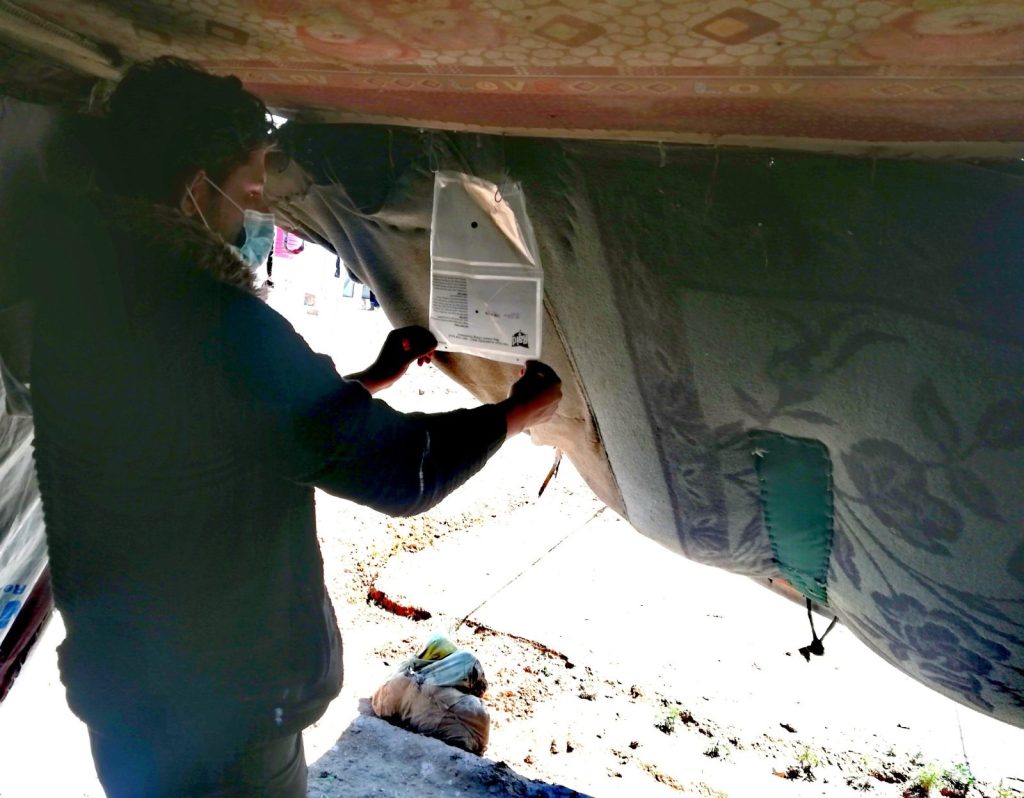
In Syria, during the 14 years after the outbreak of civil war, 16.7 million people have been forced to flee their homes, of which 7.2 million remain internally displaced in 2025. Breakdown in waste management caused by aerial bombardment has created ideal conditions for cutaneous leishmaniasis (CL) transmission, vectored by phlebotomine sandflies. Displaced populations reside in […]
Country Brief: South Sudan
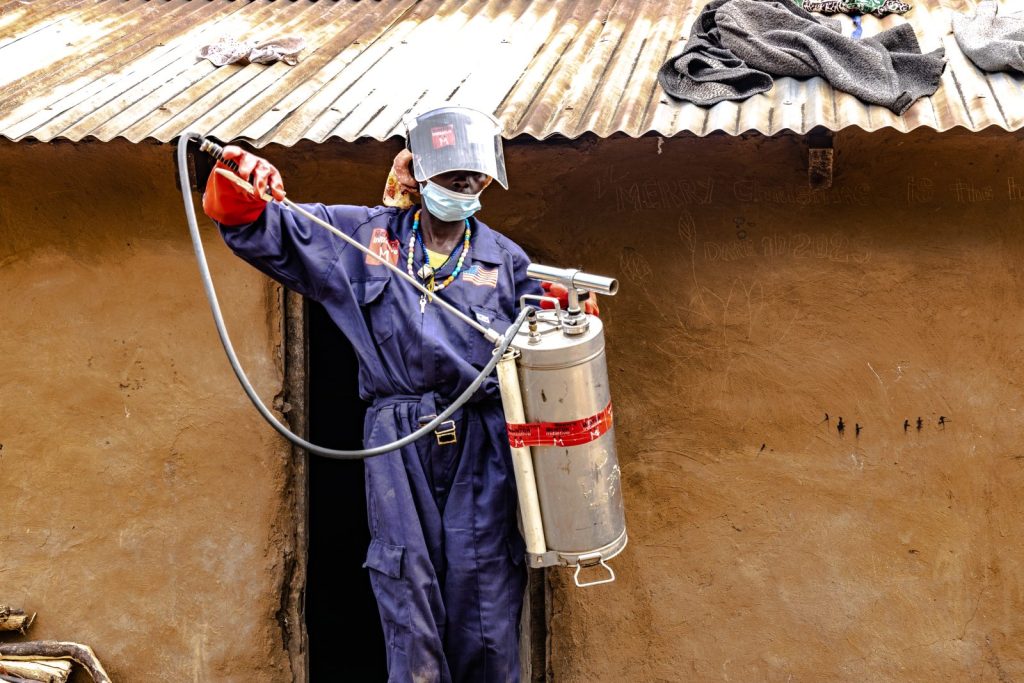
South Sudan faces a severe humanitarian crisis caused by conflict, climate shocks, economic instability, and public health challenges. Floods, droughts, and extreme heat have devastated livelihoods and displaced communities. Intercommunal violence and the influx of over 900,000 people fleeing Sudan have overwhelmed infrastructure and services. Health systems are fragile, with limited access to care and […]
Country Brief: Central African Republic

The decade-long conflict in the Central African Republic (CAR) has created acute humanitarian needs, with the OCHA humanitarian Needs Overview (HNO) 20241 estimating that 2.8 million people – nearly half of the population – require assistance. Clashes between government forces, government allies and armed groups are causing the humanitarian situation to continue to deteriorate and […]
Capacity Statement
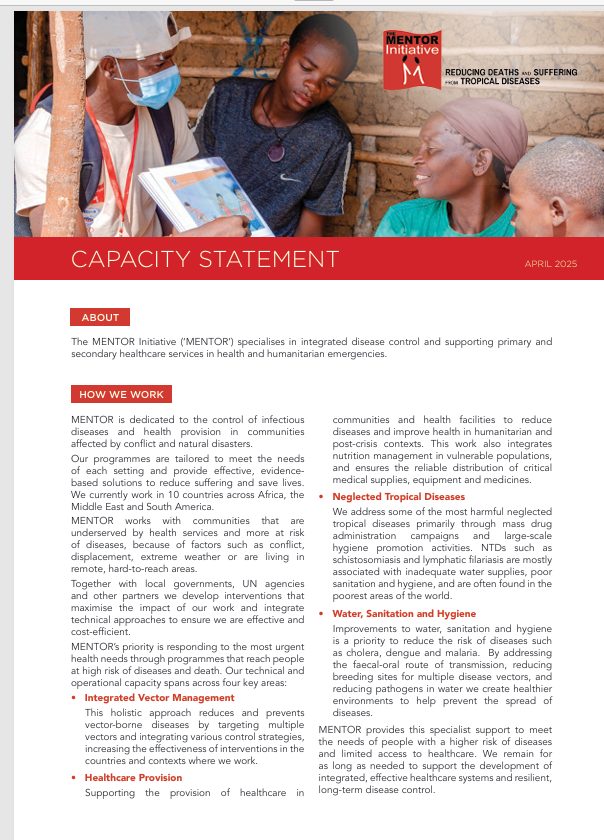
The MENTOR Initiative capacity statement, updated in April 2025.
Asian tiger mosquito in the oil-producing city of Soyo: the first report of Aedes albopictus in Angola
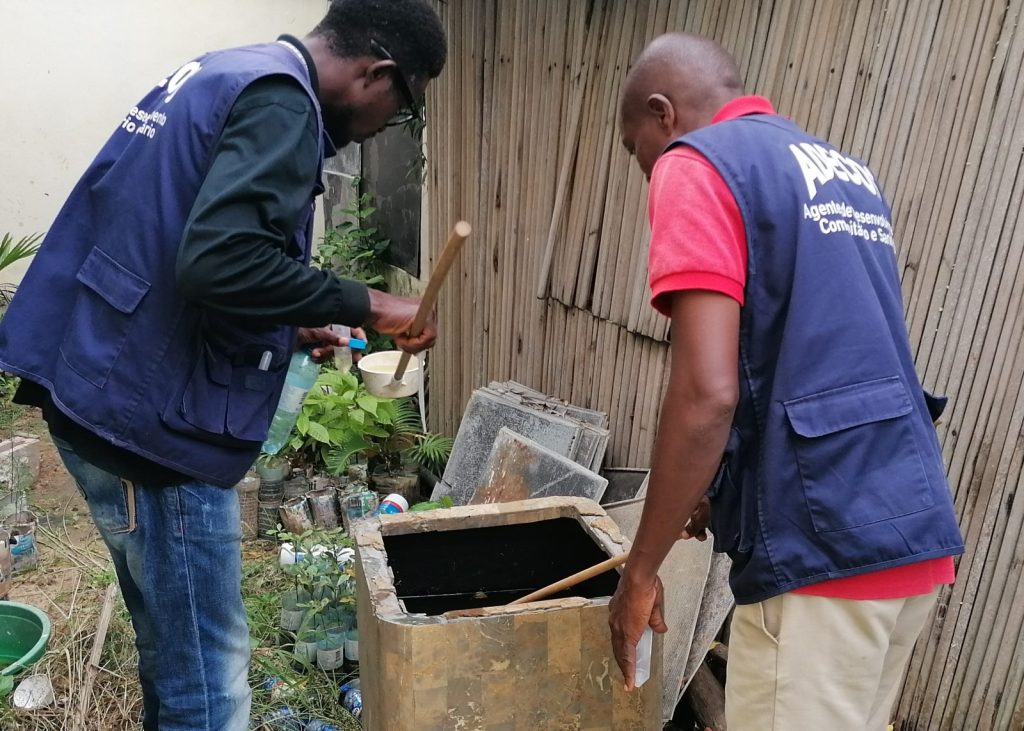
The Asian tiger mosquito, Aedes albopictus (Skuse, 1894), is a highly invasive species that has successfully colonized many tropical and temperate regions worldwide. Its rapid global spread is strongly associated with human activities and has created favorable conditions for the emergence of human arboviruses in new geographic areas. The paper reports the first detection of Aedes albopictus in Angola […]
Annual Report 2023
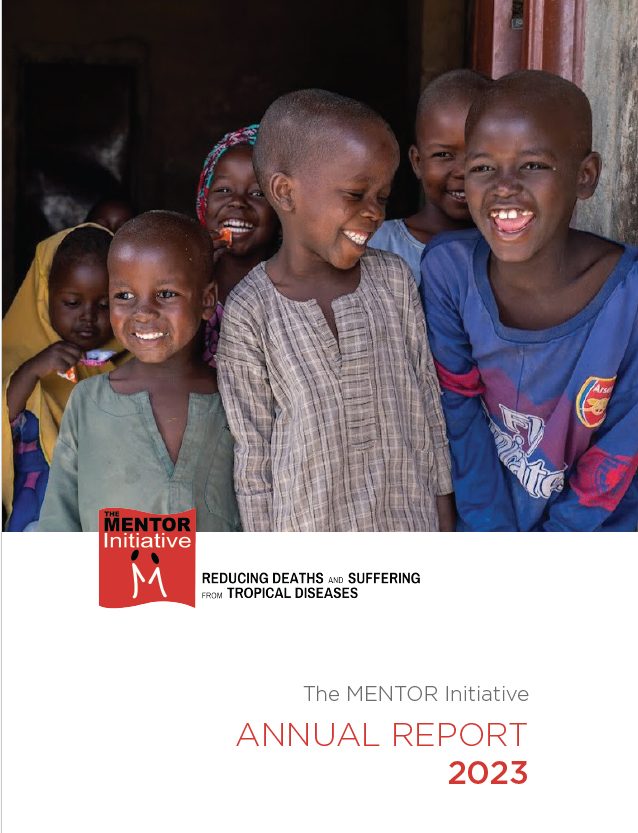
Highlights from programmes in 2023.
Global acute malnutrition is associated with geography, season and malaria incidence in the conflict-affected regions of Ouham and Ouham Pendé prefectures, Central African Republic
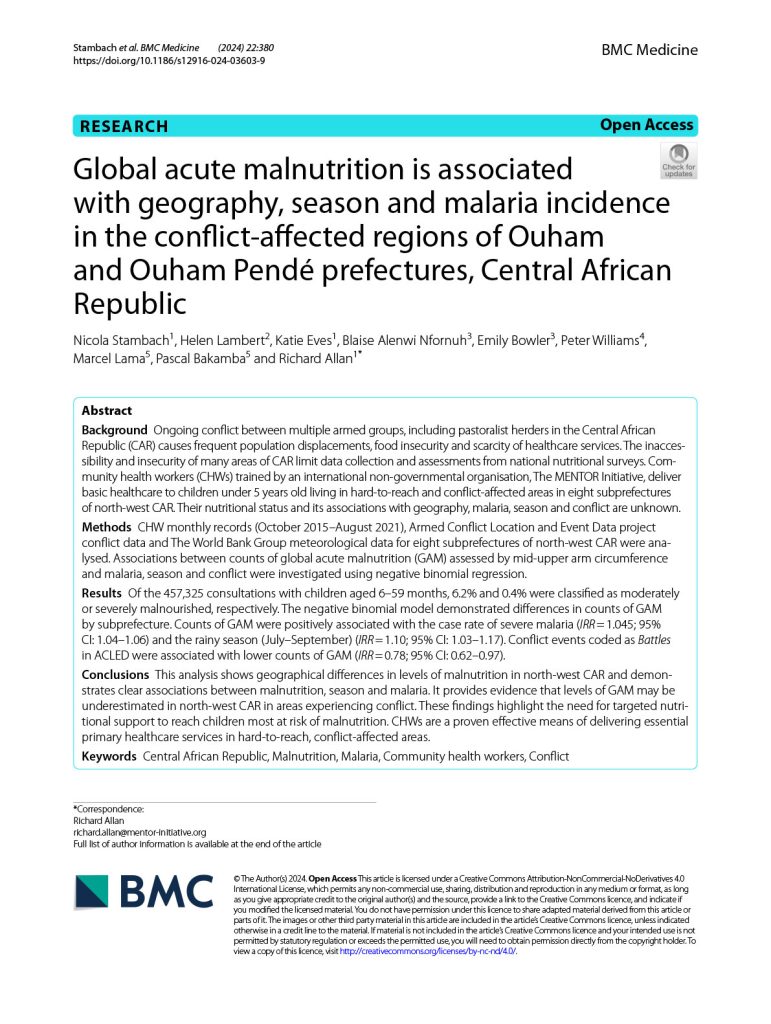
Ongoing conflict between multiple armed groups, including pastoralist herders in the Central African Republic (CAR) causes frequent population displacements, food insecurity and scarcity of healthcare services. The inaccessibility and insecurity of many areas of CAR limit data collection and assessments from national nutritional surveys. Community health workers (CHWs) trained by an international non-governmental organisation, The […]
Statement on Humanitarian Principles
As a humanitarian organisation, The MENTOR Initiative (‘MENTOR’) fully subscribes and is oriented by the core humanitarian principles of neutrality, independence, humanity and impartiality. MENTOR takes a neutral stance in conflict scenarios providing disease control interventions to anyone affected by the conflict regardless of their position in the conflict. MENTOR is also independent from any […]
Molecular and entomological surveillance of malaria vectors in urban and rural communities of Benguela Province, Angola
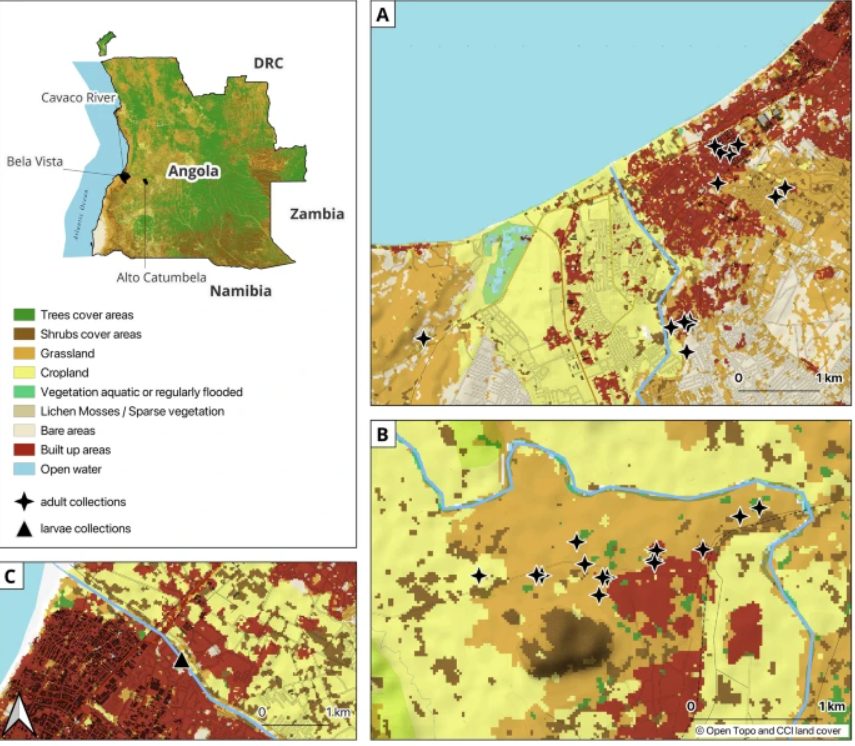
MENTOR Capacity Statement
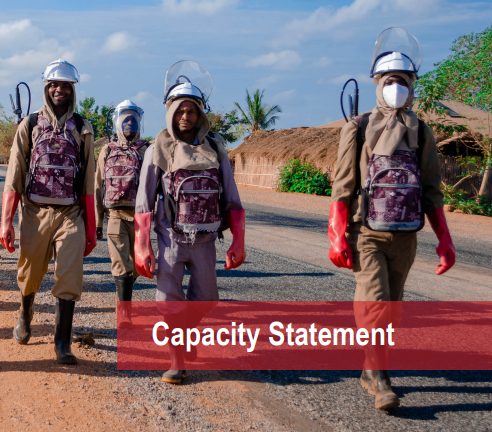
A document that outlines how we work and what we do to save lives in health emergencies and humanitarian crises.
